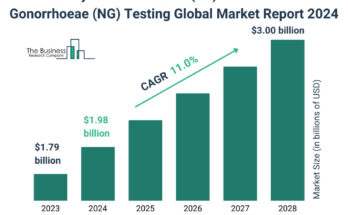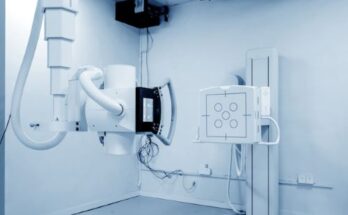[181 Pages Report] The global positron emission tomography (PET) scanners market was valued at over US$ 1.2 Bn in 2021 and is expected to exhibit a CAGR of close to 5.1% over the forecast period (2021-2031).
The concept of PET as a nuclear medicine imaging technology was established in early 1970s. Ever since the technology has evolved into routine clinical imaging modality, revolutionizing the process of diseases diagnosis and management into more effective fashion.
PET is a molecular imaging technology that detects the concentration and pharmacokinetics of radiotracer molecules that are labelled with radioisotopes. This helps to diagnose and determine the severity of a various diseases such as neurological disorders, cardiovascular disorders, cancer, gastrointestinal and various others.
Based on the operational and geometrical capabilities of PET scanners, the systems are classified as full ring PET systems and partial ring PET systems. Advancements in technological performance of these systems are always associated with higher cost, limiting its widespread utilization in clinical PET imaging.
Rising prevalence of chronic disorders such as cancer and cardiovascular disorders, coupled with greater awareness towards physical wellbeing and limitations of conventional PET scanner is spurring demand for effective diagnostic techniques, thereby augmenting growth of the market.
PET scanners have continued to improve image quality and performance over the last few years. Technological improvements such as managing dose, reduced imaging time and enhanced lesion detectability have increased PET’s functionality, thus making it easier to interpret and diagnose various life-threatening disorders.
To remain ahead of your competitors, request for a sample – https://www.futuremarketinsights.com/reports/sample/rep-gb-1333
Key Takeaways:
- By product, full-ring PET scanner is expected to hold over 86.2% of the total market share by 2031.
- Sales in the oncology segment accounted for over 85.2% of market share in 2020, owing to the increasing incidence of chronic diseases and cancer.
- Based on detector type, demand in the lutetium oxyorthosilicate (LSO) segment to held over 37.3% of market share in 2020.
- Hospitals dominate end user segment with a share of around 34.9% in 2020 due to increasing patient inflow after COVID-19 outbreak.
“Ongoing technological advancements in PET scanners, copled with increasing applications in diagnostic centers and research institutes will propel the growth of the market in the forthcoming years” says a FMI analyst.
Who is winning?Acquisitions, mergers, expansion, and product launches are the key strategies adopted by manufacturers to increase consumer base in different geographies. For instance:
- In January 2020, Koninklijke Philips N.V. introduced its advanced solutions called Vereos Digital PET/CT (world’s first and only fully digital, clinically proven, PET/CT solution), an AI-powered solutions for precision diagnosis at IRIA 2020.
Want more insights?Future Market Insights brings the comprehensive research report on forecasted revenue growth at global, regional, and country levels and provides an analysis of the latest industry trends in each of the sub-segments from 2016 to 2031. The global positron emissions tomography (PET) scanners market is segmented in detail to cover every aspect of the market and present a complete market intelligence approach to the reader. The study provides compelling insights into the positron emissions tomography (PET) scanners. The positron emissions tomography (PET) scanners market is segmented into five parts based on product type (full-ring PET scanners and partial-ring PET scanners), applications (oncology, cardiology and neurology), detector type (bismuth geranium oxide, lutetium oxyorthosilicate, gadolinium oxyorthosilicate, lutetium fine silicate, lutetium yttrium orthosilicate) and end users (hospitals, diagnostic centres, PET centres, and research institutes) across seven major regions.
Get a Tailored Made Report to Match Your requirements, Ask from Market Research Expert – https://www.futuremarketinsights.com/ask-question/rep-gb-1333
- Full-ring PET scanner
- Partial-ring PET scanner
By Application :
- Oncology
- Cardiology
- Neurology
- Others
By Detector Type :
- Bismuth Germanium Oxide (BGO)
- Lutetium Oxyorthosilicate (LSO)
- Gadolinium Oxyorthosilicate (GSO)
- Lutetium Fine Silicate (LFS)
- Lutetium Yttrium Orthosilicate
By End User :
- Hospitals
- Diagnostic Centers
- PET Centers
- Research Institute
By Region :
- North America
- Latin America
- Europe
- South Asia
- East Asia
- Oceania
- Middle East & Africa
For in-depth insights, Download a PDF Brochure – https://www.futuremarketinsights.com/reports/brochure/rep-gb-1333
About FMI:
Future Market Insights (FMI) is a leading provider of market intelligence and consulting services, serving clients in over 150 countries. FMI is headquartered in Dubai, the global financial capital, and has delivery centers in the U.S. and India. FMI’s latest market research reports and industry analysis help businesses navigate challenges and make critical decisions with confidence and clarity amidst breakneck competition. Our customized and syndicated market research reports deliver actionable insights that drive sustainable growth. A team of expert-led analysts at FMI continuously tracks emerging trends and events in a broad range of industries to ensure that our clients prepare for the evolving needs of their consumers.
Contact Us:
Unit No: AU-01-H Gold Tower (AU), Plot No: JLT-PH1-I3A,
Jumeirah Lakes Towers, Dubai,
United Arab Emirates
For Sales Enquiries: [email protected]
For Media Enquiries: [email protected]
Website: https://www.futuremarketinsights.com



